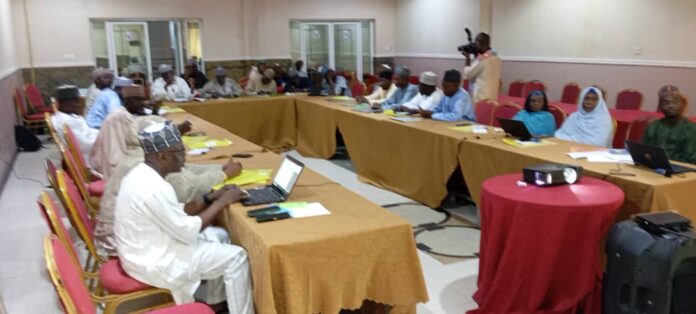By Abbas Bamalli
The United Nations Children Funds (UNICEF), has collaborated with Jigawa, Kano and Katsina States to improve social sector budgeting to be child-friendly in their respective states.
The Katsina State Commissioner for Budget and Economic Planning, Alhaji Bello Kagara, disclosed this on Wednesday at a one-day Stakeholders Policy Dialogue in Kaduna.
According to the commissioner, the dialogue was aimed at affirming their commitment on the need to allocate resources towards protecting the children’s social rights.
He said, “This policy dialogue couldn’t have come at a better time than now, because Nigeria is today being faced with numerous challenges that have direct bearing on the children.
“This is especially in the areas of malnutrition, child poverty and child abuse, which all together make the children’s future in Nigeria, particularly in Northern part of the country bleak.
“Poor financing for child-related services in education, healthcare, shelter and nutrition, among other things, exposes children to the vagaries of life.
”They are characterised by hunger, malnutrition, illiteracy, violence and crimes. The list is endless.”
Kagara pointed out that the windows for achieving the feat were many, adding, ”but they are all anchored on adequate financing to children-sensitive sectors.
”This is where the government must be seen to take the lead in significantly increasing budgetary allocation, releases and utilisation of the annual budget to education and health sectors in the 2025 fiscal year and beyond.
“This meeting should therefore be seen as a strategic forum for the states to critically examine the commonalities that bind them together.
”This is in terms of child-friendly budgeting, in order to map out workable strategies for investing in our children.”
“This is with a view to assuring the socio economic future of the states. It is common knowledge that investing in children is an investment for the future development of societies and nations.”
The News Agency of Nigeria (NAN) reports that a paper titled, ‘Investing in Nigeria’s Children, Why?’, was presented by a Social Policy Specialist, UNICEF Kano Field Office, Hajiya Fatimah Musa.
In the presentation, she recommended more political commitment, effective participation and budget openness.
She also called for the allocation of 15-26 per cent of the states’ total annual budgets to the health and education sectors.
According to Musa, the recommendation was aimed to improve and implement health and education interventions for increased human capital development of the states.
The participants at the dialogue included officials from the State Houses of Assemblies, Ministries of Budget and Civil Society Organisations (CSOs), among other stakeholders from the three states.
NAN




